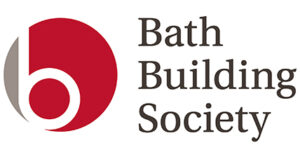Preparing for a Paralympic Games: Physiotherapy
Put yourself in the shoes of an athlete heading to a major Games: you’re weeks away from potentially the biggest competition of your life, you’re up against the most successful rivals in the world and all you want to do is train as hard as you can in order to give your event the best shot possible.
There’s only one problem: training harder than ever severely runs the risk of injury.
The specialists in charge of keeping the reigns on athletes going through this phase are, more often than not, physiotherapists, and they place a significant importance on focusing just as much on injury prevention as reactive injury treatment.
“We’re very proactive in injury prevention,” says Beenish Kamal, sports physiotherapist and teaching fellow at Team Bath.
“On occasion we obviously have to be reactive but from when we first start working with an athlete we start screenings in order to avoid injury in the first place.”

Whereas in times gone by an athlete may have worked with specialist teams on an individual basis, in modern athlete development the emphasis is placed much more heavily on collaboration between all parties in order to bring the best from athletes.
The advantageous facilities at the Sports Training Village mean athletes, physiotherapists, coaches and strength and conditioning specialists are often in close proximity of each other, and this is something the support teams make full use of.
“Interdisciplinary teamworking means we work collectively with the sport coach and strength and conditioning coaches as we feel we get a lot more out of the process having that overall understanding,” Kamal, who also works with Team Bath swimmers and covers for hockey, athletics and TASS athletes, continues.
“We have regular meetings every six weeks or so. Outside of that we’ll communicate via emails as a group – S&C, psychology and often the athletes themselves.
“Our interdisciplinary work is important for highlighting when we see an athlete pick up more niggles and then it is possible to feed this information back to the coach and the strength and conditioning team who will monitor workload on a daily basis.”
One athlete Kamal and the strength and conditioning team at the STV work closely with is Piers Gilliver, currently the world number one wheelchair fencer.
Gilliver, 21, will make his Paralympic Games debut at Rio in just a few weeks, and Kamal believes his preparation period from a physiotherapy perspective is the result of a long-term plan rather than any last-minute adjustments.

“Ahead of a big event such as Rio we’re aiming for our athletes to be robust and ready for their competition; we don’t want to risk injury in the lead-up,” she says.
“From a physiotherapy point of view we wouldn’t want to make any major changes or try new things because we don’t know how they might react to those.
“Build-up might be more maintenance-based such as soft-tissue maintenance, and we’ll work closely with athletes’ coaches so we know that we have the right programme for the athlete in the weeks leading up to an event.”
The departure of athletes to competitions abroad often means responsibilities such as physiotherapy transfer from home-based specialists to designated teams already based at the event venue.
This is the case with Gilliver, and for Kamal it is a matter of placing trust in others followed by an assessment period when the wheelchair fencer returns to Bath.
“At the end of a major event we’ll have a brief review with Piers to check he hasn’t picked up any injuries when he was away,” she says.
“If he’s had any niggles we’ll assess whether they were managed and dealt with in the right way, and how he feels in terms of general tiredness at the end of it. That will be reported and dealt with.”
For more information about athletes based at the University of Bath who are due to compete in the Paralympic Games see our Rio 2016 page.
To discover the physiotherapy and support services offered at the STV, see our Physiotherapy and sport science pages.




